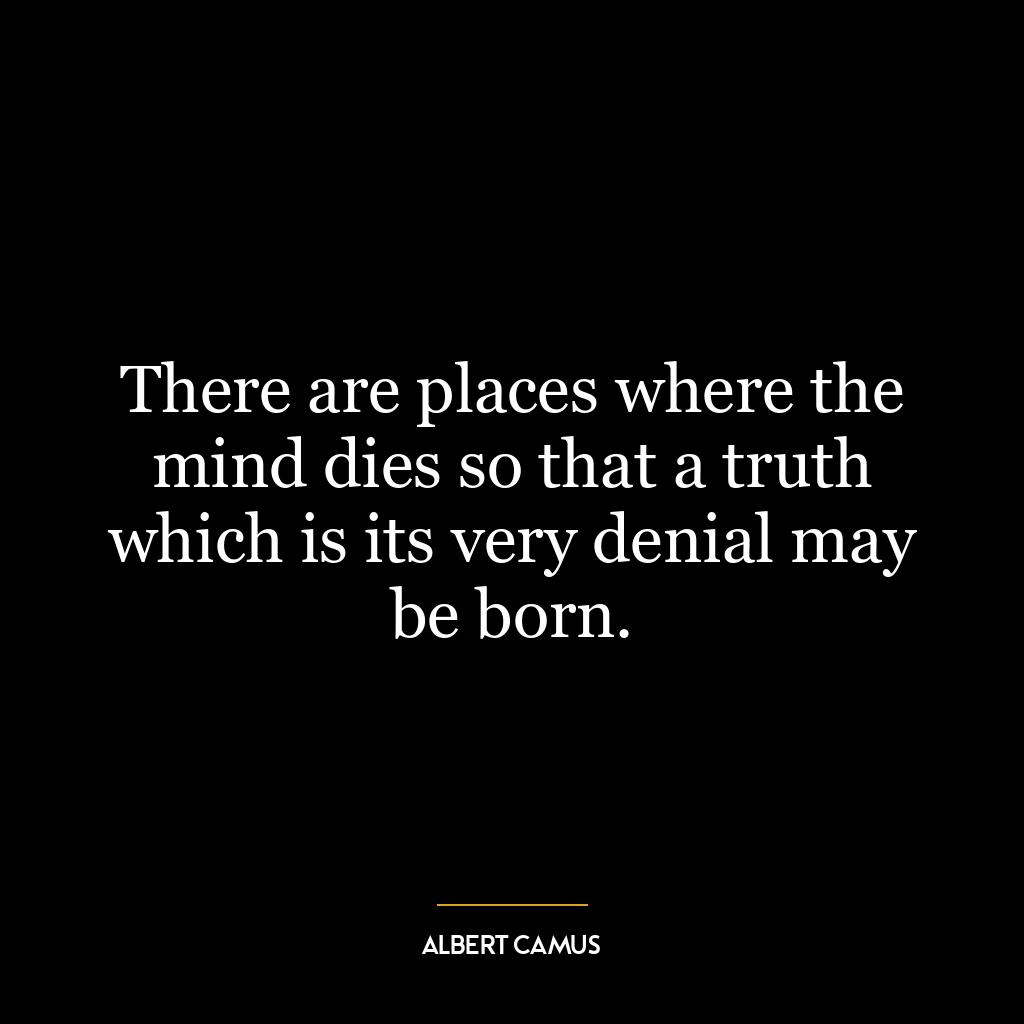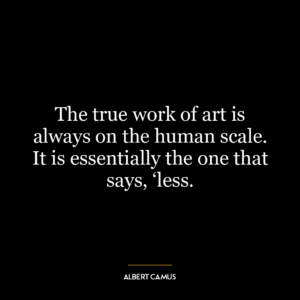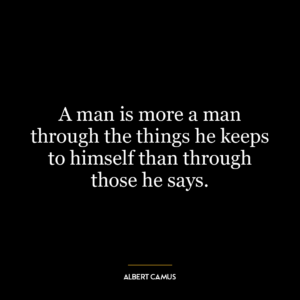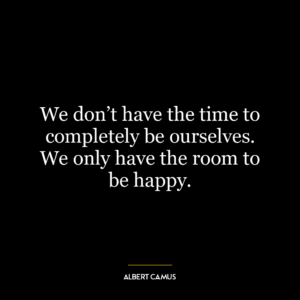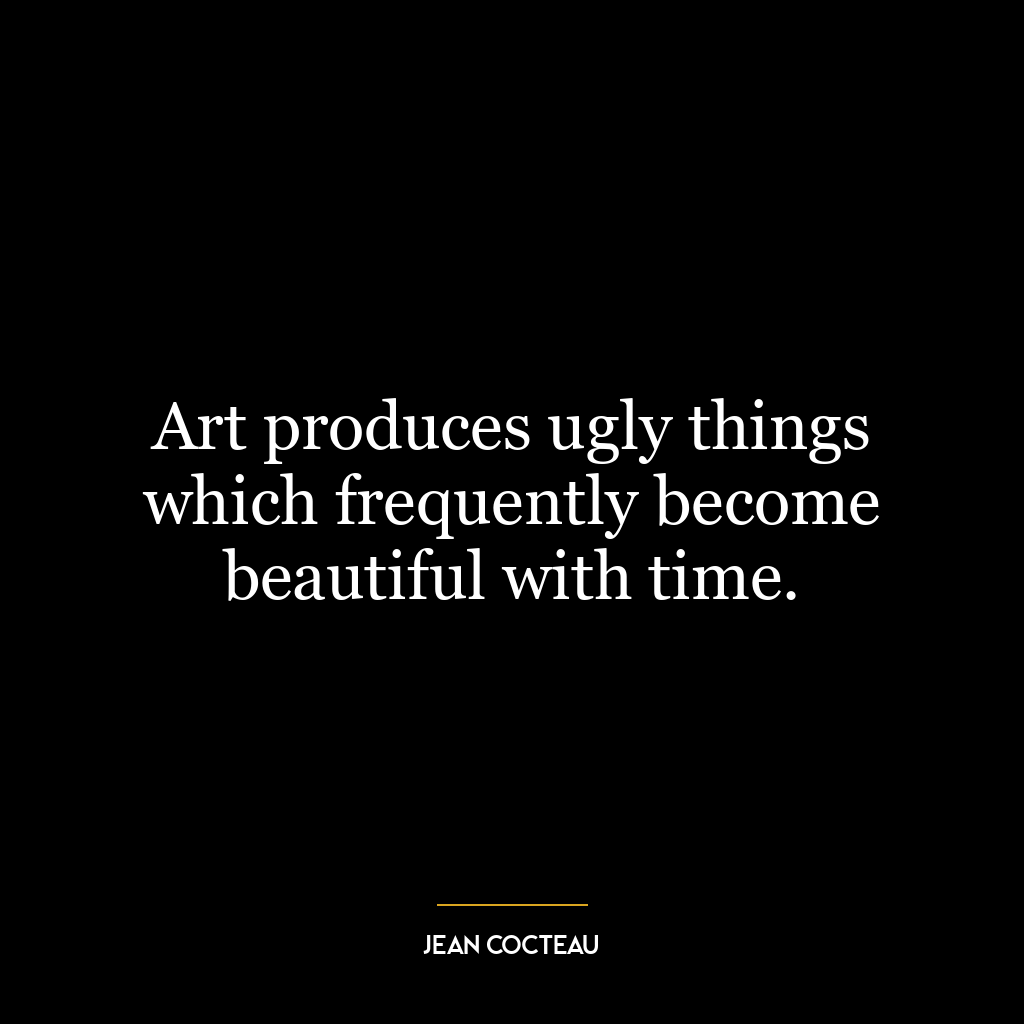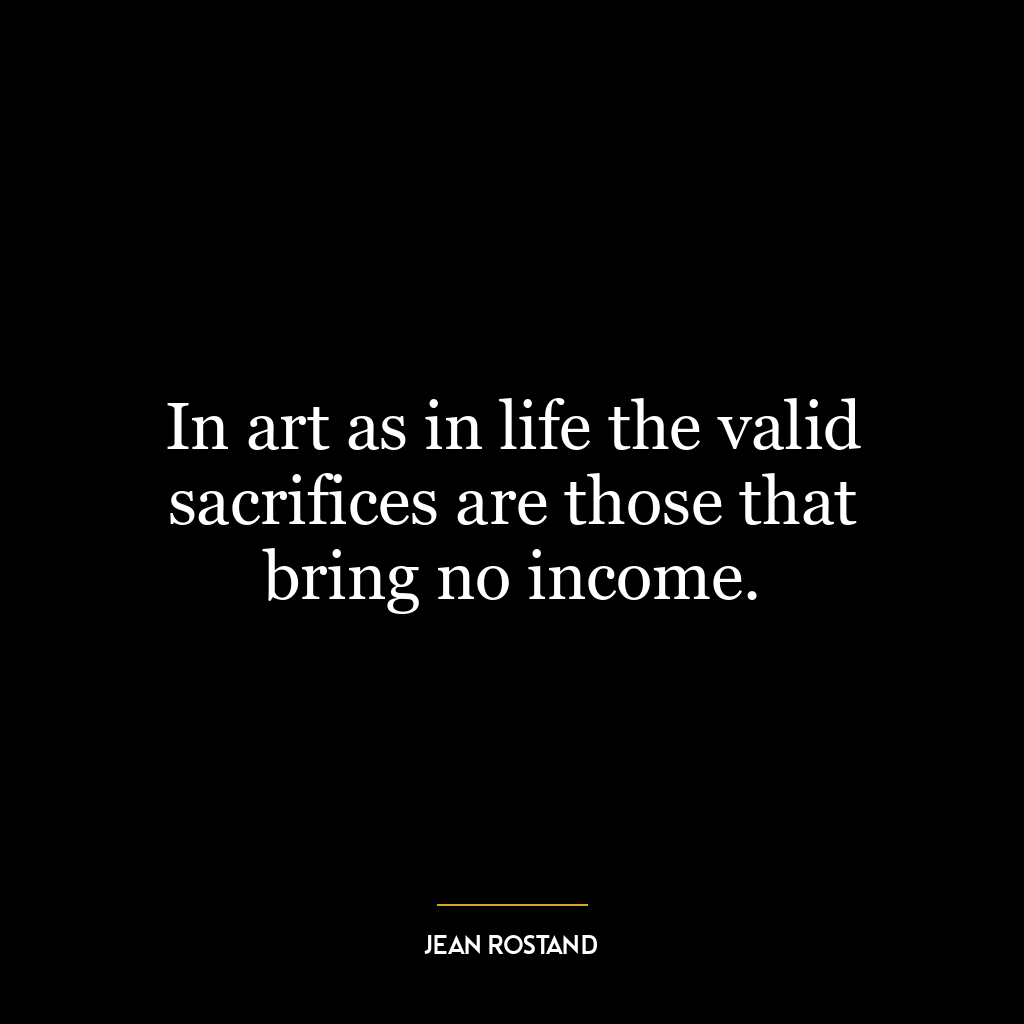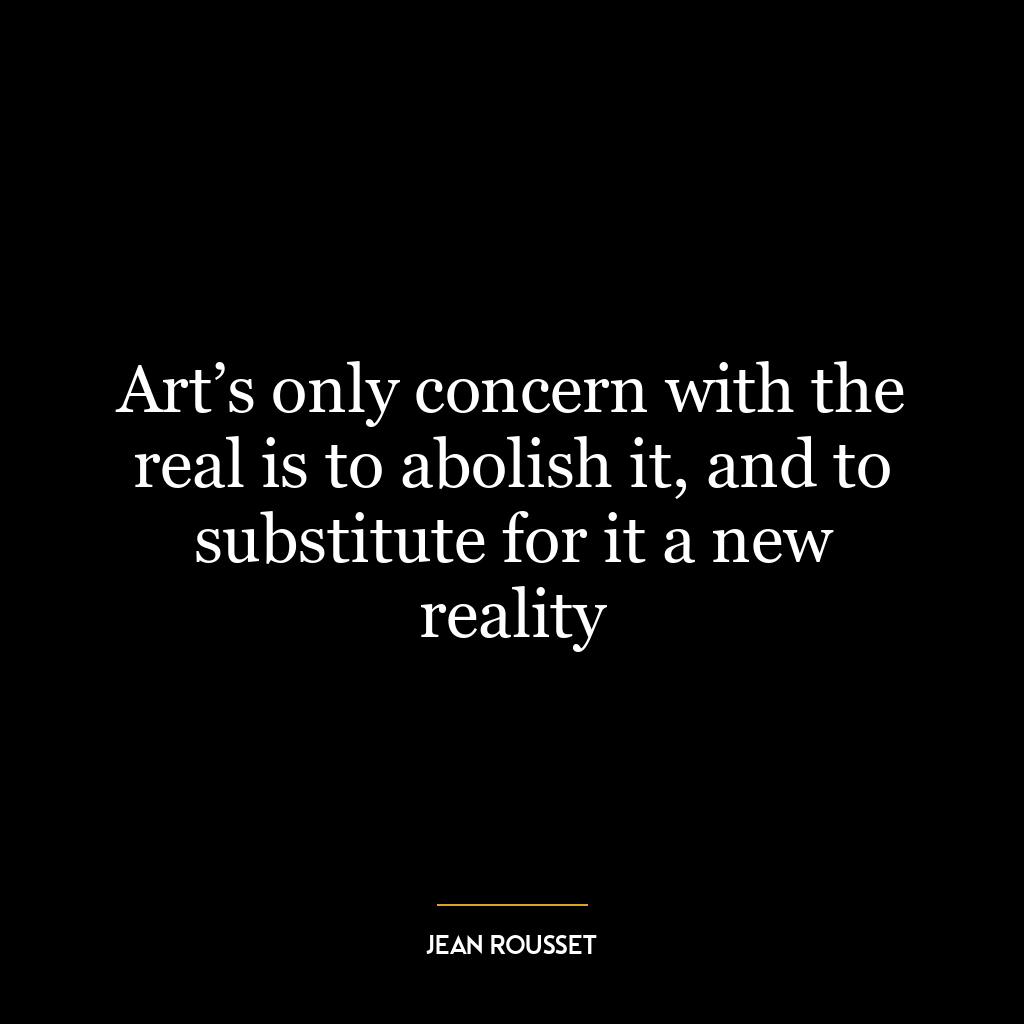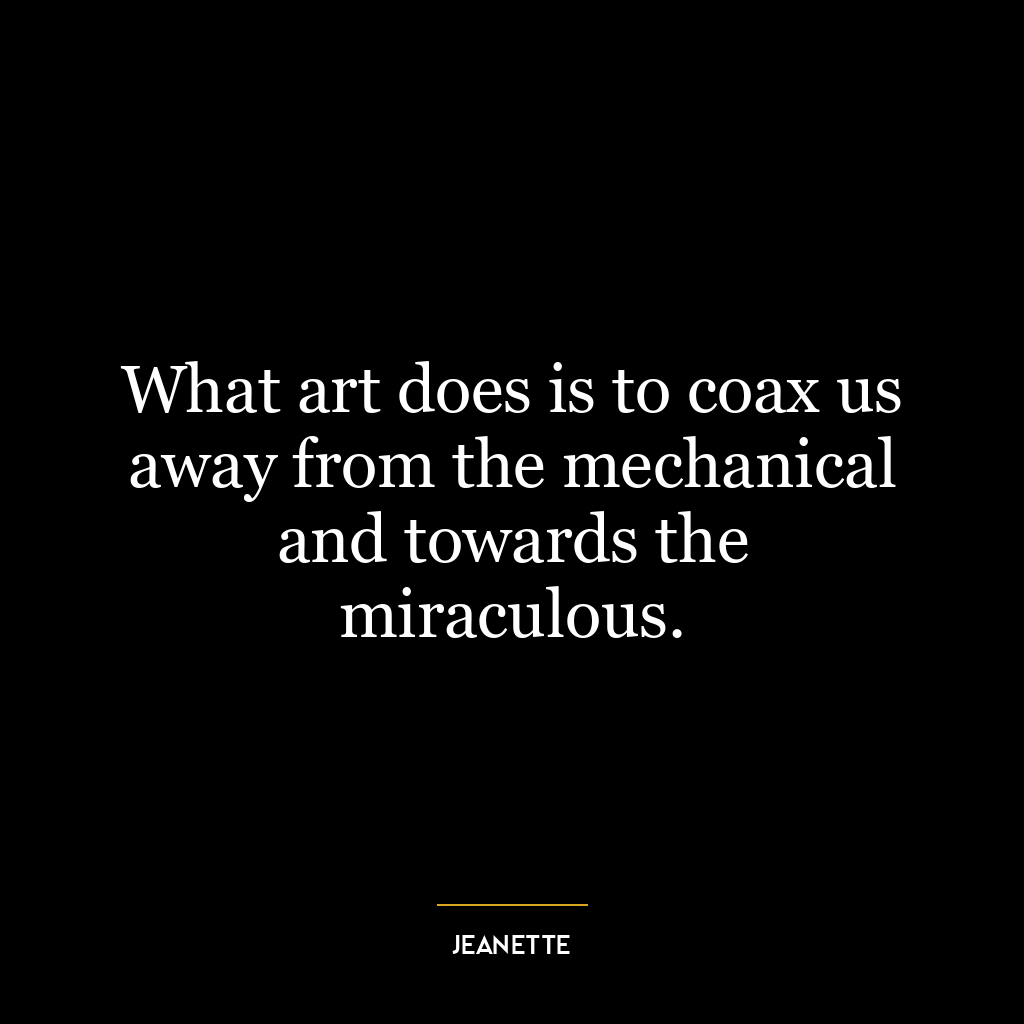There are places where the mind dies so that a truth which is its very denial may be born.
This quote suggests that there are instances when one’s preconceived notions or beliefs must be completely dismantled for a new, often contradictory, truth to emerge. The “death of the mind” signifies a complete letting go of existing thoughts, opinions, and beliefs to give way to a new understanding or perspective that may be in stark contrast to what was previously held as true.
In essence, it speaks to the transformative power of cognitive dissonance, where holding two conflicting ideas leads to a tension that can only be resolved by altering our beliefs or understanding. This process can be uncomfortable or even painful, hence the metaphorical “death” of the mind. But it is through this process that growth and transformation occur, giving birth to a new truth that was previously denied by the mind.
In today’s world, this idea is more relevant than ever. We live in an era of information overload where different perspectives and truths coexist. This can cause cognitive dissonance, forcing us to reevaluate and sometimes overhaul our long-held beliefs. For example, someone with a traditional mindset may find it hard to accept progressive ideas about gender equality or climate change. But when confronted with compelling evidence or experiences, their mind may “die” to these old beliefs, allowing a new truth to be born.
In terms of personal development, this idea suggests that growth often comes from discomfort and challenging our own beliefs. It encourages us to be open-minded, to question our assumptions, and to be willing to change our minds in the face of new information or experiences. It reminds us that it’s okay to let go of old beliefs that no longer serve us and embrace new truths that lead to personal growth and transformation.

